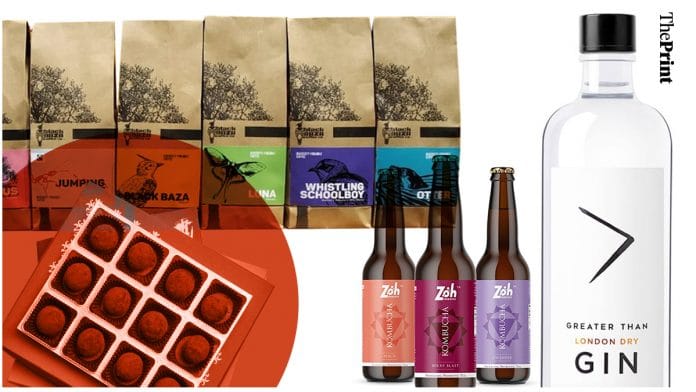You may hate our snobbish avocado toasts, and our obsession with Insta-worthy cafes. You may absolutely despise the way we hop from one job to another without an ounce of regret or the sentiment of loyalty. But you can’t hate the way we have navigated our shopping habits — they are in complete sync with Prime Minister Narendra Modi’s ambitious Aatmanirbhar Bharat plan.
While ‘boomers’ were throwing Chinese TV sets (that might have been Japanese or Korean) out of their windows to prove their nationalism after the India-China standoff, the average urban millennial consumer was busy finding environment-friendly and sustainable products to satiate her/his immediate needs, and at the same time helping boost local businesses much before you came to know that shopping locally was in national interest.
What you might deem elitist or spoilt behaviour is actually helping local and organic businesses grow. Take for instance Kombucha, a fizzy and fermented drink with 0.5 per cent alcohol content, the craze for which among the Indian consumer is helping local businesses flourish
Our penchant for trying exotic produce and exploring different cultures also helps local businesses prosper.
Several urban millennials I know bought local, Instagram-advertised products in the last few months that we have been working from home. Be it Greater Than Gin from Goa, sustainably sourced Black Baza Coffee from Karnataka or turmeric from Meghalaya. Yes, it costs more and most of the time is a luxury product, but millennials anyway haven’t been buying cars or homes, as Finance Minister Nirmala Sitharaman once pointed out.
An average urban millennial didn’t need a catchy appeal by the Prime Minister in order to buy local and at the same time stay global. This has been an ethos that the privileged in this generation have largely shared for a while.
Also read: These are the things Indians have been spending their money on during the pandemic
Buying local and sustainable products
According to a 2015 Nielsen survey conducted on over 30,000 consumers from over 60 countries, 73 per cent millennials were willing to pay more for sustainable products. Nielsen also noted that we continue to spend more on environmentally friendly products, even though we’re working in the most unfavorable environmental conditions observed in over 100 years.
That sustainability is intertwined with giving local businesses a push, which is not an alien concept to us. According to a study, an average boomer spends half as much as a millennial while buying from small businesses.
For Jaipur-based Kamakshi Chauhan, consumerism became a subject of existential introspection during the lockdown, and buying local and sustainable products became her numero uno priority while filling her shopping cart. “I have become extremely conscious of the products I buy, and if I do splurge, it’s mostly on local brands. For skincare, I stick to local brands like Pixi, Pahadi Local, Forest Essentials, and Conscious Chemist.”
Chauhan, like many of her privileged millennial contemporaries, is extremely cautious of buying products that are ethically sourced, cruelty-free and locally produced. She says she will stick to Jaipur-based brands like Gulabchand, Suvasa and Rattan textiles among others.
ALso read: How young people would like to redesign education and skills for a post-Covid era
Changing market
Millennials today are key drivers of the market, and they have certainly been disruptive, making companies stay on their toes. RWA uncles, who like to lecture us on our choice of clothes and food and nationalism, would do well to remember this.
Our habit of buying local to boost domestic economies rather than swell the pockets of multinationals has driven the organic farm-to-table industry and forced a number of businesses to source products locally, and adopt sustainable business practices.
The greatest testimony to our commitment to local businesses has to be the shop local tag or ‘support local businesses’ sticker visible on Instagram, which helps us spot, promote and buy from local businesses. Even though Facebook, which owns Instagram, says it’s their way to give these businesses a virtual platform, one cannot be sure of the social media giant’s claim of philanthropic generosity. They’re astute and probably best-suited in reading our consumption patterns. Introduction of such hashtags and stickers means Facebook noticed millennials pay attention to local businesses and that it was in its interest to help us find what we’re looking for.
So, dear boomers, save your lectures on ethics and patriotism and hide your scoffs when someone orders an avocado toast. Millennials are doing much more than smashing TV screens in vain. They are pushing markets to turn local while maintaining a global appeal.
Views are personal.







Really amusing when indians adopt American classification of boomers millenials etc. India never had boomers. Not in the socioeconomic sense. Just nonsense.